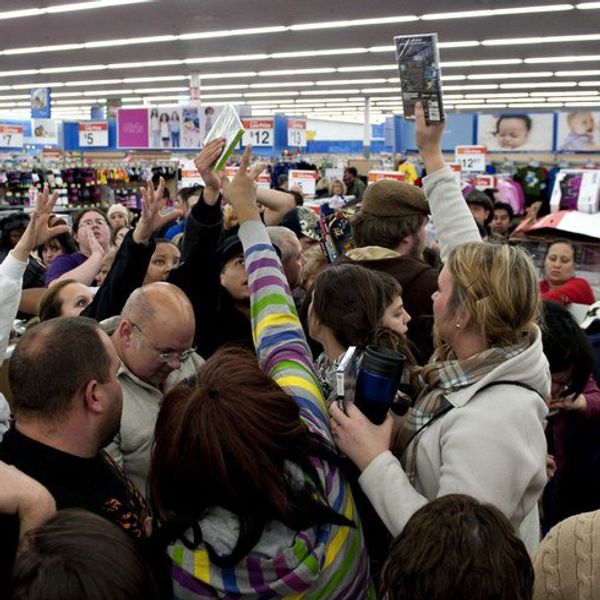It’s November, which means Thanksgiving and Black Friday approaching. Though, I don’t remember the last time I bought something on Black Friday. I always get really excited for it, partially because Thanksgiving is my favorite holiday and I am in a good mood, but then it never fails to disappoint me. If I was planning to buy a TV or Xbox, the Black Friday would be the day to do it, but in reality the clothes I want are never going to be more than 20 percent off on Black Friday. Twenty percent is still a sale, but when I think of Black Friday I think of an once-in-a-lifetime sale and people madly rushing into stores on a mission to get all their holiday shopping done.
On Black Friday of 2013, my friend and I were sitting in the mall parking lot at 7 a.m. fantasizing about all the things we were going to buy at Urban Outfitters and wondering if we were going to have to start any fights to get the last pair of shoes in our sizes. When we walked in the scene was completely different from our imagination: we were the only ones in the store and the sale was twenty percent off select items. Even though a dress, which was originally $100, was now $80, the dress was still not worth $80 in my mind. A 60-inch TV could drop down from $1,100 to $800, which is thirty percent off, but since the consumer is spending more, he or she is also saving more.
Cyber Monday is a smart concept, but the reality is that most items will be gone by the time Cyber Monday comes around. Stores start the Black Friday sales early and extend them later so the time to buy is right when the sales go up. The disadvantage to Cyber Monday is not being able to see the clothes in person or try them on, but you do beat the crowds and you can do the shopping in the privacy of your own home.
REI came out with an idea for Black Friday that could have a major impact on other businesses. They are closing all their stores and urging people to #OPTOUTSIDE, or spend time outdoors instead of in a shopping mall. The idea doesn’t stop there: they are paying their employees to be outside instead of working Black Friday. Rather than capitalizing on the day in which people are willing to go on a shopping spree, they have created a valuable marketing strategy that goes along with the aesthetic of their brand. If the store sells outdoor apparel and equipment, then it only makes sense for people to be using their products in the way they are intended.
Black Friday is idealized especially with Cyber Monday and the multiple websites, such as 6pm or Amazon that can offer certain items at lower prices year-round. In reality there has been a decline in Black Friday sales as more people have decided to stay in the day after Thanksgiving. Last year saw an 11 percent decrease in sales over the 2014 Thanksgiving-Black Friday weekend. For now, Black Friday is still an event, as 87 million people went out last year, but a downward trend is forming, and there are two possible solutions for why Black Friday is becoming increasingly less successful: We are getting lazier or more reluctant to being victims of overrated holidays.





















